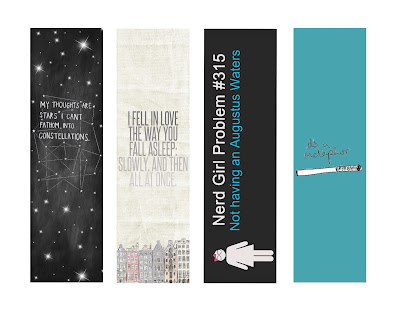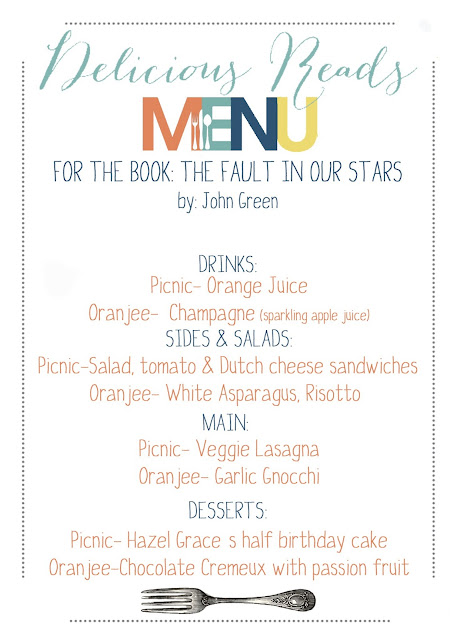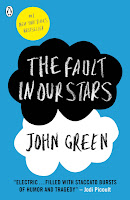"Sometimes, you read a book and it fills you with this weird evangelical zeal, and you become convinced that the shattered world will never be put back together unless and until all living humans read the book."
—The Fault in Our Stars
I found this rad website where they pull "LOOKS FROM BOOKS" and I just had to share Hazels "outfit" inspired by the picnic with Augustus and dinner in Amsterdam!
See all of the outfits inspired by The Fault in Our Stars at College Fashion!
More EXCITING news,
I had so much fun putting it together, I just might make it a tradition with each book we read.
Check it out HERE
CHECK OUT THIS SCRUMPTIOUS SPREAD!!
Want the recipe for yourself?
Your in luck, click on the foods listed below to add to your recipe collection!
(original recipe from All Recipes)
Side note: I used half portabella mushrooms and half shitake mushrooms and I also added green peas at the end for a bit of color.The user comments say to cut the mushroom amount in half I did that. Omit the dry wine, I didn't want it to have a fermented after taste.
Celestial salad:
Celestial salad:
(original recipe from Your Home Based Mom)
(Original recipe from Olive Garden)
Side note: I brought this gnocchi. I didn't do the chicken portion, just the gnocchi and Veronese sauce.
(original recipe from Martha Stewart)
(Original recipe from Chef Daddy

 |
| Lisa was the big quiz winner and won a gift certificate to "Oranjee!" THAT would have been awesome right? The certificate was actually for ORANGE LEAF but I thought it was a genius alternative to the real restaurant. ;) See the QUIZ and BOOK PRESENTATION HERE! |
*INTERVIEW W/ JOHN GREEN TAKEN FROM THE ATLANTIC
"This is a book that breaks your heart -- not be wearing it down, but by making it bigger and bigger until it bursts."
Q: I read The Fault in Our Stars right when it came out and it has really stuck with me. It's just an incredibly challenging topic to write about, and I thought it was done very intelligently and empathetically. But I'm curious why you wanted to even try to write a book about young people who have cancer, and how that idea got lodged in your head.
So that was the initial inspiration.
That took 12 years. I was very intimidated by it.
Q: I am wondering whether, since the book came out, you've gotten any reactions from young people who are sick with a terminal illness. Have they read the book? What have you heard from them?
A: Yeah. They've been very generous. That was something that really scared me -- was thinking about what sick kids in particular would think about the book, and whether they would feel like it was just another, for lack of a better term, bullshit cancer book. And they've been really generous. You know, I tried really hard to listen to as many voices as I could as closely as possible during the many years that I was working on this book, and to pay attention and not to bring my own expectations too much into the story.
A lot of them have felt like there were things that I got right that were important to them, and that means a lot to me. That's in some ways the most rewarding part of having written the book is being able to meet a lot of young people who are struggling with this and knowing that their life expectancy is different from what we in our contemporary culture associate a rich or full or good life.
The truth is, or at least the argument of the book is, I think, that a short life can also be a good life.
I was crying when I wrote it too.
Q: You said that TFIOS was once a very different book. What was it like? Was it always about two kids with cancer?
A: It was about like a dozen kids with cancer who created a club called the Dead Person’s Society in a cave (ridiculous) near the children’s hospital (doubly ridiculous) and they’d sneak out of the hospital together and visit the cave and convene the DPS (triply ridiculous).
It was basically a very flimsy, high-concept way of allowing me to think through my own thoughts and angers about death and suffering and so on. It was not good.
Q: You have in both Gus and Hazel characters who come off as kind of "wise beyond their years," I guess would be the cliche. Do you think that is a response to the experiences that they've had, or do you think we just tend to underestimate young people in general?
A: I will say that the people who say that Gus and Hazel come off as wise beyond their years are invariably adults. I've literally never heard that from a teenager -- not just about these kids but about any kids in my books. Yeah, my interest as a writer is not in reflecting actual human speech, which, of course, does not occur in sentences and is totally undiagrammable. That's not my interest. My interest is in trying to reflect the reality of experience -- how we feel when we talk to each other, how we feel when we're engaging with questions that interest us.
So, yeah, certainly, teenagers don't sound that way when they talk to us. Like, they don't sound that way *to us*. But they do sound that way to themselves. And that's what interests me. I'm trying to capture that, because I'm not really interested in capturing how they actually sound, because that's not their experience.
The reality of experience is ultimately a lot more interesting to me than what I think is sort of wrongly called "objective reality." Because I don't actually think objective reality is a thing -- certainly not a very interesting thing for fiction, I don't think.
Q: I saw that there is a movie version in the works. I'd like to know your thoughts on it, whether you've been involved in any of the early stages ...
A: Yeah, I'm involved. They've shared every draft of the script with me -- the script is amazing, so I don't have a ton to say about it. I mean, I have a ton to say about it, but ... They've certainly listened to everything that I've said really closely. I feel like I've gotten to know the screenwriters quite well. And I'm really, really, really a huge fan of the director ... I think he's brilliant. I think he understands the book in a really profound way. I think he's really committed to the stories, and that's a special and rare thing out there in Hollywood.
Q: And I was wondering, beyond family expansion, whether you have any up-and-coming projects you're working on right now that you think Fault in Our Stars fans would like to hear about.
A: I'm sure you'd like to hear about me writing another book, but I'm not writing one. I'm working a lot on YouTube stuff. We have an educational program called Crash Course that my brother and I have both really thrown ourselves into in the last year, and that we're really passionate about. That's taking up a lot of my time. I'm just starting to write -- I've been saying that for six months but it's true now -- so hopefully I'll finish something in the next few years.
The next few questions were taken from John Greens Q&A about TFIOS
Q. Deep down, do you have a sense of when Hazel dies? (Since the book ends abruptly)
Do you picture her inevitably dying young or living to be older?
A: No.
Anyway, there is no definitive way to end it or any other book. No story is ever over, because every human life ripples into every other one, and there is no way to end a story definitively and the search for a definitive end is (imho) the wrong search.
A: Yeah, this is going to be a big problem for the life of the book, particularly because what people say about the book is, “I cried so much.” Well, a lot of potential readers hear that and think, “Huh, well I don’t like crying, so I think I’ll pass on this one.” Of course, it’s all about the KIND of crying one is doing, and whether one is grateful to have had the experience of reading the book. (I mean, I guess TFiOS is sad, but I hope that it is also funny and joyful etc.)
I would tell them that if they don’t enjoy reading the book they can punch you hard once in the stomach.
Q. How do I explain to someone that this is more than just a book about cancer?
A: It seems like this will be the biggest obstacle the book faces in terms of reaching new readers. A lot of people (myself included) don’t like to read sad books that will make them cry. They figure, not wrongly, that there is plenty of sadness and crying in real life.
This is why I advocate the “If you don’t like this book, you can punch me in the stomach” tactic for sharing The Fault in Our Stars with your friends.
 |
| BOOKMARK EXAMPLE |
Want to create your own airline ticket? Then go HERE to make you're own in a snap!
*DON'T FORGET TO LEAVE A LITTLE LOVE IN THE COMMENT SECTION*



















